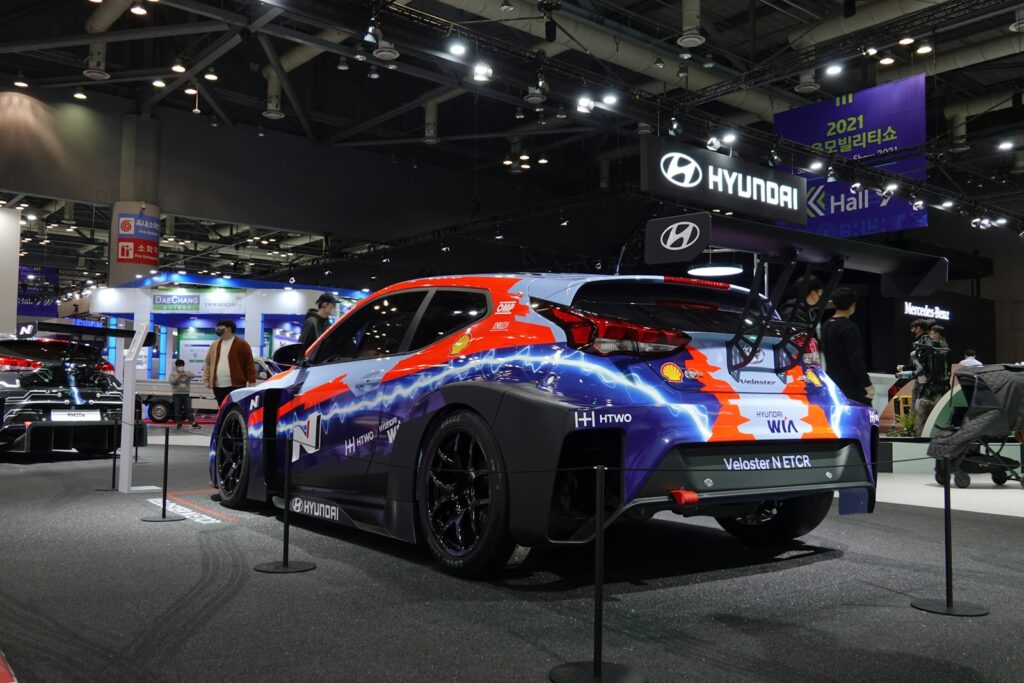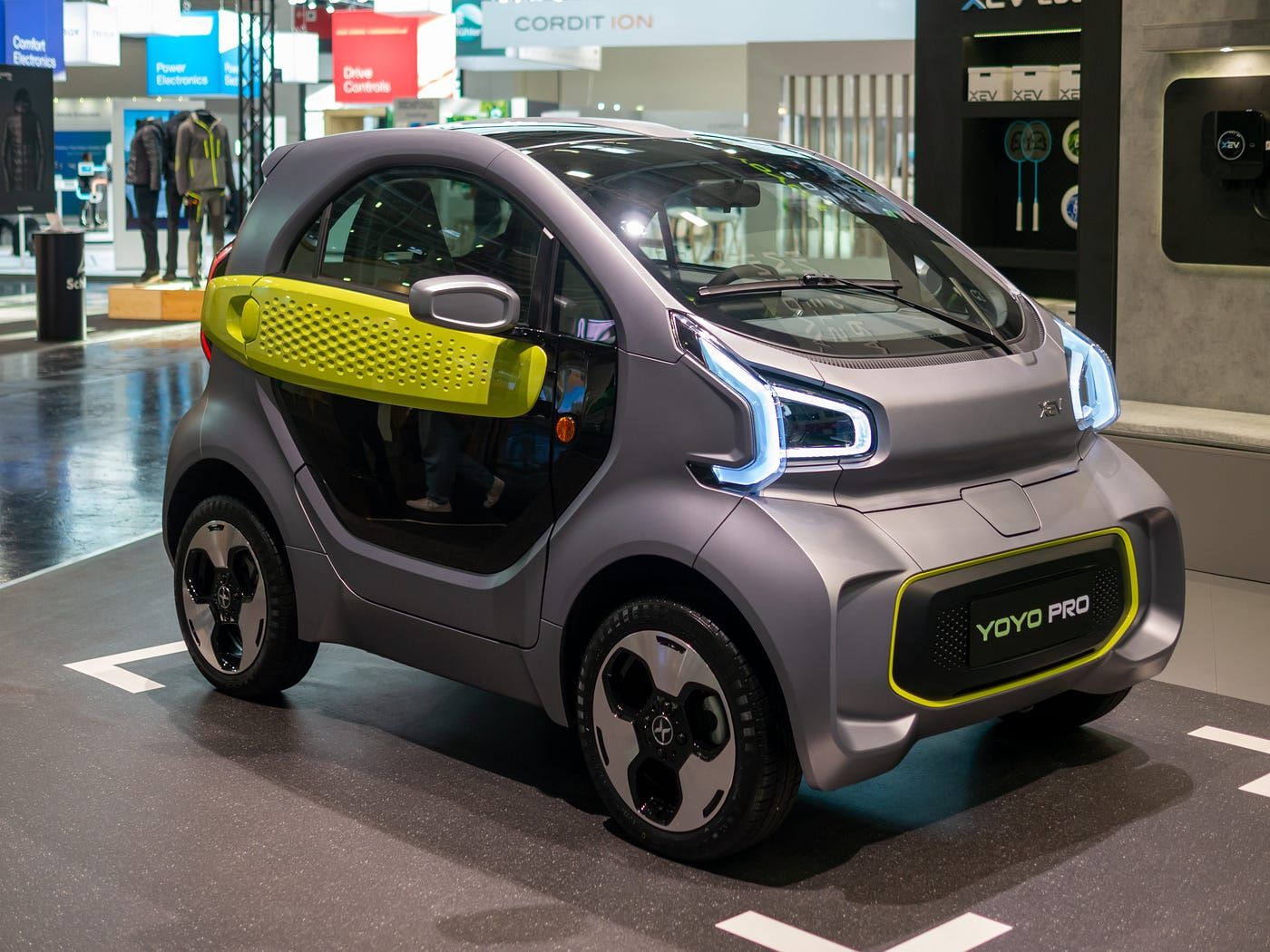
The automotive landscape is a symphony of sounds, but not all notes are equally appreciated. While some enthusiasts revel in the visceral rumble and roar of a powerful engine, the pervasive presence of excessively loud vehicles on our daily commutes often sparks a contentious debate. It’s a complex issue, weaving together personal preference, mechanical realities, and societal impact, transcending the simple act of driving to touch upon engineering, psychology, and community standards.
At the heart of this discussion lies a spectrum of motivations, from the purely passionate to the overtly performative. As Redditor u/elevate-digital queried, “Guys with extremely loud vehicles, why do you do this to everyone?” The ensuing responses offer a fascinating glimpse into the diverse rationales, ranging from a simple love for the sound to more intricate connections with a car’s performance and even expressions of identity. For many, the noise isn’t just an annoyance; it’s feedback, a tangible link to the mechanics of driving, hearing the engine rev, feeling the shift in gears, and experiencing a car’s capabilities in a more immersive way.
Yet, this passion often clashes with the collective desire for peace and quiet. High engine revs producing excessive noise can transform an enthusiast’s joy into an environmental nuisance, a matter of regulatory compliance, and a source of considerable community friction. Understanding these diverse drivers—both the human and the mechanical—is crucial for navigating the often-noisy intersection where automotive passion meets public peace. Let’s embark on an in-depth exploration of why these vehicles make their presence known, examining the varied reasons that contribute to the cacophony of our commutes.

1. **The Pure Enjoyment of Sound**For a significant segment of car owners, the motivation behind a loud vehicle boils down to one simple, undeniable fact: they just like the sound. This isn’t merely a passive preference; it’s an active, almost primal connection to the rumble, the growl, and the roar of a well-tuned engine. As Redditor u/thedudear eloquently put it, regarding their Pontiac G8 with a 6-liter V8 and straight pipes, “Ripping it through a tunnel truly is a fun experience.” This sensory experience provides a tangible rush, a visceral thrill that enhances the driving experience in a deeply personal way.
For a significant segment of car owners, the motivation behind a loud vehicle boils down to one simple, undeniable fact: they just like the sound. This isn’t merely a passive preference; it’s an active, almost primal connection to the rumble, the growl, and the roar of a well-tuned engine. As Redditor u/thedudear eloquently put it, regarding their Pontiac G8 with a 6-liter V8 and straight pipes, “Ripping it through a tunnel truly is a fun experience.” This sensory experience provides a tangible rush, a visceral thrill that enhances the driving experience in a deeply personal way.
This affinity for automotive acoustics extends to various engine configurations. Turbocharged vehicles, for instance, cultivate a dedicated following among those who are, as u/Merry_Dankmas describes, “a sucker for turbo noise.” The distinct whistle and whoosh of a turbocharger, coupled with the exhaust note, create a unique auditory signature that many find incredibly engaging. Similarly, the deep, resonant growl of a V8 muscle car holds immense appeal, with u/Merry_Dankmas adding, “V8s are so much fun” after a brief stint with a loud Mustang GT.
Beyond specific engine types, the broader car enthusiast community often finds genuine pleasure in the symphony of a performance vehicle. Redditor u/rexiesoul’s enthusiastic “Because the whistles go WOOOOOOOOO” perfectly encapsulates this joyous appreciation. It’s about the “feeling, the fizz, the emotion from the car,” as u/rconn1469 explains, emphasizing that for “real car guys,” it’s not about impressing others. Instead, “We like to feel our seat vibrate on a spirited drive through some canyon roads. We like the feedback it gives you… We like hearing the engineering marvel under the hood of our special-to-us car in even greater detail. We like the experience of driving and it enhances the experience for us.” This highlights a profound connection to the mechanical artistry and the exhilarating sensation of driving.

2. **A Reflection of Youthful Indiscretion or Lack of Awareness**The journey through car enthusiasm, for some, includes a phase marked by what they later recognize as youthful indiscretion or a pronounced lack of social awareness. This period often involves actions perceived as “cringe-inducing” in hindsight, driven by a blend of excitement, peer influence, and an underdeveloped understanding of societal norms. As u/Crush-N-It candidly admits about their high school years with a loud manual Jeep Cherokee, they “Did a lot of cringe-inducing things” and were “Such an a**hole” at the time, later realizing, “It just reminds me of how much of a douche bag I was.” The desire for attention and the thrill of perceived speed often overshadow consideration for others.
The journey through car enthusiasm, for some, includes a phase marked by what they later recognize as youthful indiscretion or a pronounced lack of social awareness. This period often involves actions perceived as “cringe-inducing” in hindsight, driven by a blend of excitement, peer influence, and an underdeveloped understanding of societal norms. As u/Crush-N-It candidly admits about their high school years with a loud manual Jeep Cherokee, they “Did a lot of cringe-inducing things” and were “Such an a**hole” at the time, later realizing, “It just reminds me of how much of a douche bag I was.” The desire for attention and the thrill of perceived speed often overshadow consideration for others.
Redditors frequently connect this behavior to a general lack of social or personal awareness. One user noted, “One of the things I’ve noticed about people like this is they have an astounding lack of social awareness. Or personal awareness. It’s like they live life on autopilot.” This suggests a disconnect, where the impact of their actions on the surrounding environment and community isn’t fully processed or considered. The idea that “loud meant fast,” as u/Noah_Vanderhoff confessed, was a common misconception, particularly among younger drivers, leading to modifications primarily aimed at amplifying sound rather than genuine performance gains.
3. **The Desire for Attention and Status**A prominent motivation for deliberately loud vehicles, particularly those modified beyond the requirements for performance, is the fundamental human need for attention and social status. This drive is often rooted in the belief that a roaring exhaust makes a car and its driver more noticeable, admired, and in some circles, cooler. As u/Bernie_Dharma observed, “The loud pipes is part of seeking social status and attention. They think this makes them cool and that people will notice and admire them and their car.” This pursuit of an ego boost, a desire to stand out, is a powerful underlying factor for many who choose to amplify their vehicle’s sound.
A prominent motivation for deliberately loud vehicles, particularly those modified beyond the requirements for performance, is the fundamental human need for attention and social status. This drive is often rooted in the belief that a roaring exhaust makes a car and its driver more noticeable, admired, and in some circles, cooler. As u/Bernie_Dharma observed, “The loud pipes is part of seeking social status and attention. They think this makes them cool and that people will notice and admire them and their car.” This pursuit of an ego boost, a desire to stand out, is a powerful underlying factor for many who choose to amplify their vehicle’s sound.
This quest for visibility isn’t always subtle. The loud engine serves as an explicit declaration: “I’m here. You have to take notice of me.” It’s about making an impression and ensuring one’s presence is unequivocally felt, whether in a parking lot or on the highway. U/Capt_Pickhard noted that a loud exhaust “attracts attention to make people look over and see your either modified, or sportscar supercar whatever,” effectively drawing eyes to the vehicle and, by extension, to the driver. This overt signaling aims to project an image of power, sportiness, or uniqueness, fulfilling a desire for individualization within the automotive community.
However, this pursuit of attention frequently comes with a significant social cost. While the driver may perceive their loud vehicle as a status symbol, the broader public often views it as an unwelcome intrusion. U/Bernie_Dharma highlights this disconnect: “with a complete lack of awareness that most people find them annoying.” This sentiment is echoed by u/Quaiker, who posits, “There are only two possibilities: they want attention and even negative attention works for them, or they don’t care about anyone that isn’t themselves. Both are childish mindsets.” The desire for attention, whether positive or negative, and a perceived ego boost are undeniable drivers, yet they often put the enthusiast at odds with community expectations for tranquility and mutual respect.

4. **Unintended Noise from Damage or Neglect**Not all loud vehicle noises are intentional modifications or expressions of personal preference; a significant portion stems from mechanical problems, damage, or overdue maintenance. A common and unfortunate scenario is the “stolen catalytic converter,” as u/PublicBoysenberry161 points out. When this vital component, responsible for reducing exhaust emissions and dampening sound, is removed or stolen, the exhaust system becomes significantly louder, often leading to a harsh, unrestricted roar that is far from desirable for the owner, who is left “waiting for an appointment with their local mechanic.”
Not all loud vehicle noises are intentional modifications or expressions of personal preference; a significant portion stems from mechanical problems, damage, or overdue maintenance. A common and unfortunate scenario is the “stolen catalytic converter,” as u/PublicBoysenberry161 points out. When this vital component, responsible for reducing exhaust emissions and dampening sound, is removed or stolen, the exhaust system becomes significantly louder, often leading to a harsh, unrestricted roar that is far from desirable for the owner, who is left “waiting for an appointment with their local mechanic.”
Beyond theft, general wear and tear or neglect can result in unintended noise. U/Tricky_Bottle_6843 acknowledges a third group of loud vehicle owners who “can’t afford to (or don’t care to) fix their old-broken exhaust.” A rusted-through exhaust pipe, as described by u/Ghost17088, where “the exhaust rusted in half,” will certainly create excessive noise until repaired. Similarly, u/Lenny_Pane mentions, “I can’t afford new rotors yet, my brakes squeak a bit but my engine/exhaust ain’t modified to be any louder,” illustrating that sometimes, noise is a byproduct of financial constraints preventing necessary repairs rather than a deliberate choice.
Effective engine maintenance is crucial in preventing such disruptive noises. Diagnosing common engine problems reveals that issues with the valvetrain, like tapping or ticking sounds, can arise from “low oil levels or the need for adjustment,” and insufficient lubrication can “increase friction and lead to engine damage.” Grinding noises, demanding “immediate attention,” may imply “severe friction or a mechanical breakdown,” potentially from “low or dirty oil.” Even routine components like misfiring spark plugs or a worn serpentine belt can contribute to unwanted sounds, producing uneven running or a loud squealing. Addressing these issues through regular inspections and adherence to service intervals, including oil and filter changes, is pivotal in preempting mechanical failures that cause excessive engine noise.

5. **Inherent Nature of Performance Vehicles**For a subset of vehicle owners, the loudness of their car is not a result of deliberate, aftermarket modification solely for sound, but rather an inherent characteristic of high-performance engineering. Modern performance vehicles, even those equipped with catalytic converters and mufflers, are often designed to deliver a powerful auditory experience that reflects their capabilities. As one Redditor with a C6 Corvette explained, after an engine refresh with an “aftermarket camshaft, and head work,” the car “Is still just loud, nature of performance.” This isn’t about being an “a**hole” with noise; it’s simply how these machines are designed to sound when operating as intended.
For a subset of vehicle owners, the loudness of their car is not a result of deliberate, aftermarket modification solely for sound, but rather an inherent characteristic of high-performance engineering. Modern performance vehicles, even those equipped with catalytic converters and mufflers, are often designed to deliver a powerful auditory experience that reflects their capabilities. As one Redditor with a C6 Corvette explained, after an engine refresh with an “aftermarket camshaft, and head work,” the car “Is still just loud, nature of performance.” This isn’t about being an “a**hole” with noise; it’s simply how these machines are designed to sound when operating as intended.
These vehicles are often built with less restrictive exhaust systems, which are a byproduct of the quest for more power and efficient gas expulsion. While car enthusiasts are on a “never ending quest for more power,” a key strategy is to use a “less restrictive exhaust” system. Especially on turbocharged vehicles, the loudness is often “just a byproduct of decreasing restriction and not always the intention.” Even with factory-installed mufflers and catalytic converters, the engineering choices made to maximize horsepower and torque naturally lead to a more pronounced exhaust note than what one might hear from a standard commuter car.
Upgrading and modifying for performance also contributes to this inherent loudness. When enthusiasts choose modifications like “quality performance air intakes and free-flowing exhaust systems,” they are primarily focused on enhancing power output and acceleration. These modifications “let our engine breathe better and expel exhaust gases more efficiently, inching closer to the engine’s potential.” The resulting increase in sound, while appreciated, is a secondary effect of optimizing the engine’s dynamics. Reprogramming the engine control unit (ECU) and upgrading the exhaust system means exhaust gases “escape quickly, freeing up the engine to rev higher and stronger,” leading to a naturally louder, more vigorous response that is characteristic of a performance-tuned machine.

6. **Contextual Loudness – When Driven Hard**Another significant aspect of vehicle noise is its contextual nature, specifically how many performance cars are only truly loud when actively driven with spirited intent. This contrasts sharply with vehicles that are perpetually loud due to damage or modifications designed for constant maximum volume. For many responsible enthusiasts, their vehicles maintain a relatively subdued presence in everyday driving scenarios, transforming into an auditory spectacle only when the situation permits and their driving style demands it.
Another significant aspect of vehicle noise is its contextual nature, specifically how many performance cars are only truly loud when actively driven with spirited intent. This contrasts sharply with vehicles that are perpetually loud due to damage or modifications designed for constant maximum volume. For many responsible enthusiasts, their vehicles maintain a relatively subdued presence in everyday driving scenarios, transforming into an auditory spectacle only when the situation permits and their driving style demands it.
As u/jig articulates, “I have two cars with aftermarket exhaust. Neither are any louder than stock unless I put my foot in it. In town or my neighborhood, I’m just another car.” This highlights a conscious choice to manage noise output in sensitive environments. The ability to “swap to sport mode, drop my foot and enjoy the note” on “the highway or back roads” speaks to a balanced approach, where the full acoustic potential of the vehicle is unleashed only in appropriate settings, respecting residential peace during routine driving.
Similarly, u/Ghost17088 emphasizes this distinction, stating that their exception to owning loud vehicles was one that “is only loud if I drive it hard.” They further clarify, “I drive easy in the neighborhood and it sounds normal and quiet. It is only loud on the track/highway.” This demonstrates a deliberate effort to mitigate noise pollution in residential areas while still allowing for the enjoyment of the car’s performance capabilities where it is less intrusive. This kind of responsible driving, adhering to local laws, is crucial for maintaining the delicate balance between enjoying our vehicles and respecting our shared environment. It’s about leveraging the vehicle’s performance capabilities and the accompanying sound in a way that is mindful of the community, understanding that the car’s ‘voice’ is not a constant, but a response to how it is driven.





